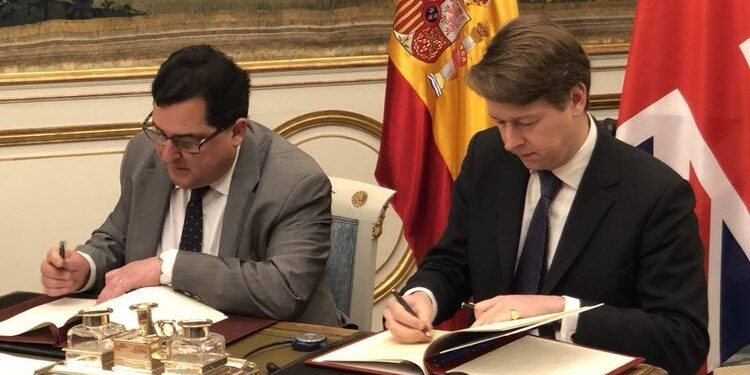Eduardo González
Last March 16, the agreement between Spain and the United Kingdom came into force, guaranteeing the active and passive vote of British and Spanish citizens in the municipal elections of the two countries.
The “Agreement between the Kingdom of Spain and the United Kingdom of Great Britain and Northern Ireland on the participation in certain elections of nationals of each country resident in the territory of the other” was signed on January 21, 2019 in Madrid by the then Secretary of State for the European Union, Luis Marco Aguiriano, and the then British Parliamentary Under Secretary of State for Exiting the European Union, Robin Caspar Walker, in the framework of the bilateral negotiations prior to Brexit.
The agreement is provisionally applied from January 31, 2020, the date on which the United Kingdom left the European Union, but did not officially enter into force until last March 16, once approved by the two Houses of Parliament, as published yesterday in the Official State Gazette (BOE). Spain will hold municipal elections on May 28th and the United Kingdom will do the same in May (on the 4th in England and on the 18th in Northern Ireland).
According to the Treaty on the Functioning of the European Union, citizens of the Union have the right to vote and to stand as candidates in elections to the European Parliament and in municipal elections in the State in which they reside, under the same conditions as nationals of that State. As a consequence, the then King Juan Carlos I enacted, in August 1992, a reform of the 1978 Constitution to introduce passive suffrage (the right to stand as a candidate) for foreigners in municipal elections, since the Constitution, as such, did not prohibit active suffrage (the right to vote).
Before the constitutional reform and outside the EU Treaty, Spain had already signed bilateral treaties in this sense with the Netherlands, Denmark, Sweden and Norway. Finally, the approval of the multilateral Maastricht Treaty made the bilateral agreements with the Netherlands, Denmark and Sweden (and, of course, with the other eight Member States, excluding Spain) unnecessary, so that only the agreement with Norway, which did not belong and still does not belong to the Union, was maintained and remains in force.
The exit of the United Kingdom from the EU forced Madrid and London to sign the aforementioned electoral reciprocity agreement in January 2019. More than 300,000 Britons currently reside in Spain and in the United Kingdom, according to official figures, some 350,000 Spaniards are registered as residents. In the province of Malaga alone, the 73,000 British residents represent around 20% of the electoral roll in municipal elections.
At present, Spain has bilateral agreements of this type with Bolivia, Cape Verde, Chile, Colombia, Korea, Ecuador, Iceland, Norway, New Zealand, Paraguay, Peru, United Kingdom and Trinidad and Tobago. Likewise, according to the Central Electoral Board, “all persons residing in Spain who, without having acquired Spanish nationality, have the status of citizens of the European Union, enjoy the right of active suffrage”.
In any case, active and passive suffrage for foreigners applies only to municipal elections and, therefore, is not valid for general or regional elections. The main reason for this difference, according to the Constitutional Court, is that in general and regional elections, “bodies holding powers directly attributed by the Constitution and the Statutes of Autonomy and linked to the ownership by the Spanish people of sovereignty”, specifically legislative power, are elected. Therefore, foreign citizens cannot vote in these elections because they do not have “the ownership of sovereignty” in Spain.
On the other hand, this restriction does not apply to municipal elections because municipalities do not have legislative power and, therefore, do not imply any exercise of national sovereignty. In fact, the Constitution makes it clear that the election of councilors or mayors corresponds to “the residents of the municipality by universal, equal, free, direct and secret suffrage”, regardless of their nationality.







